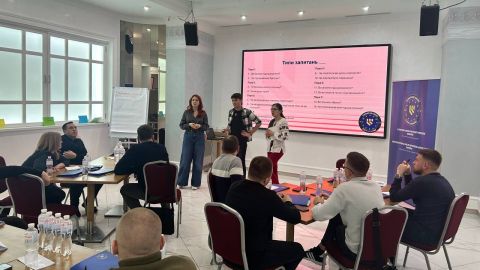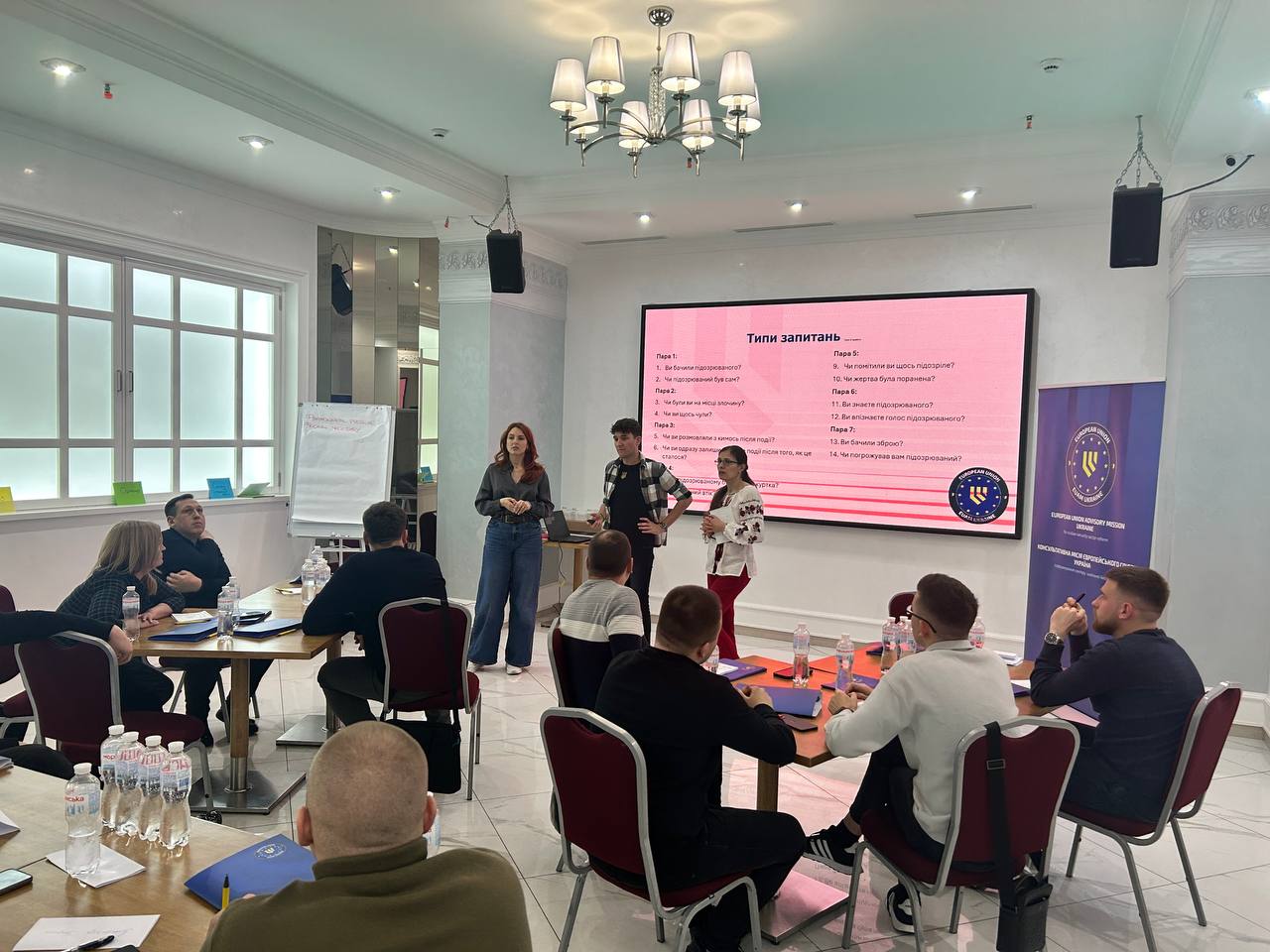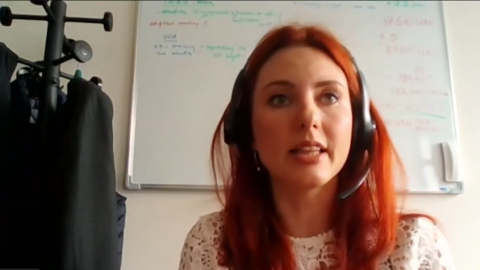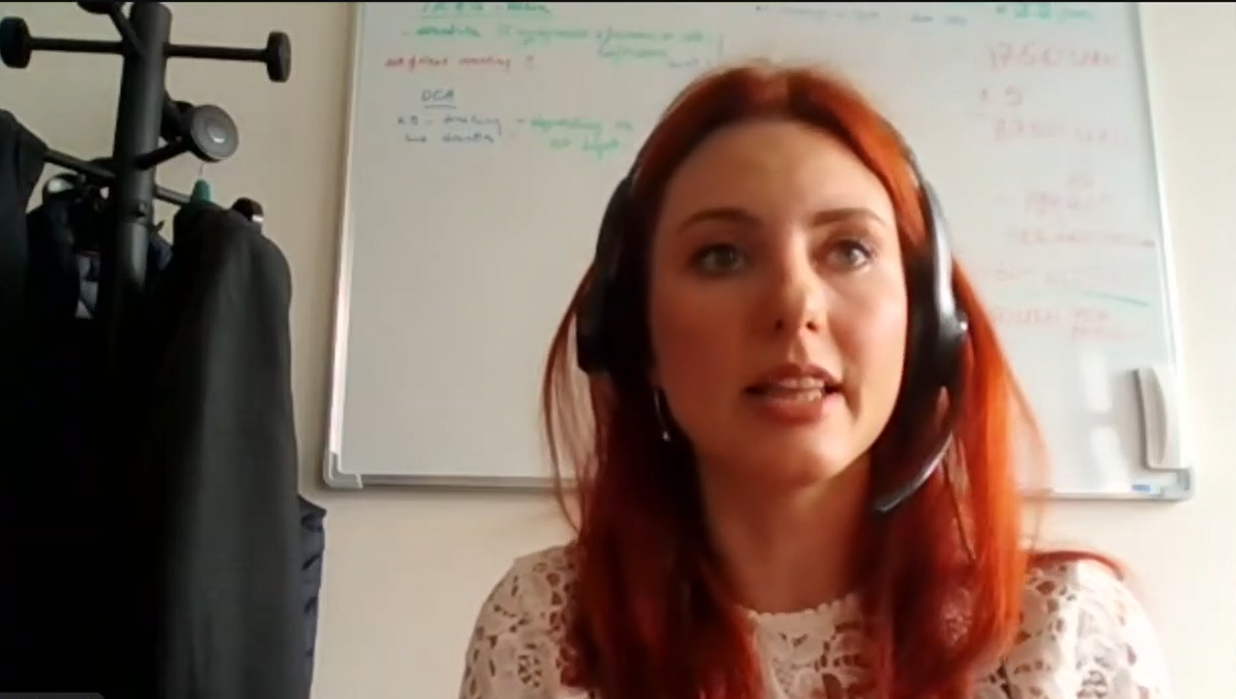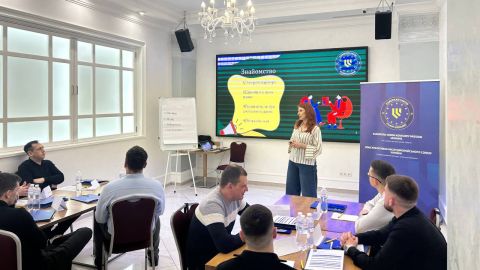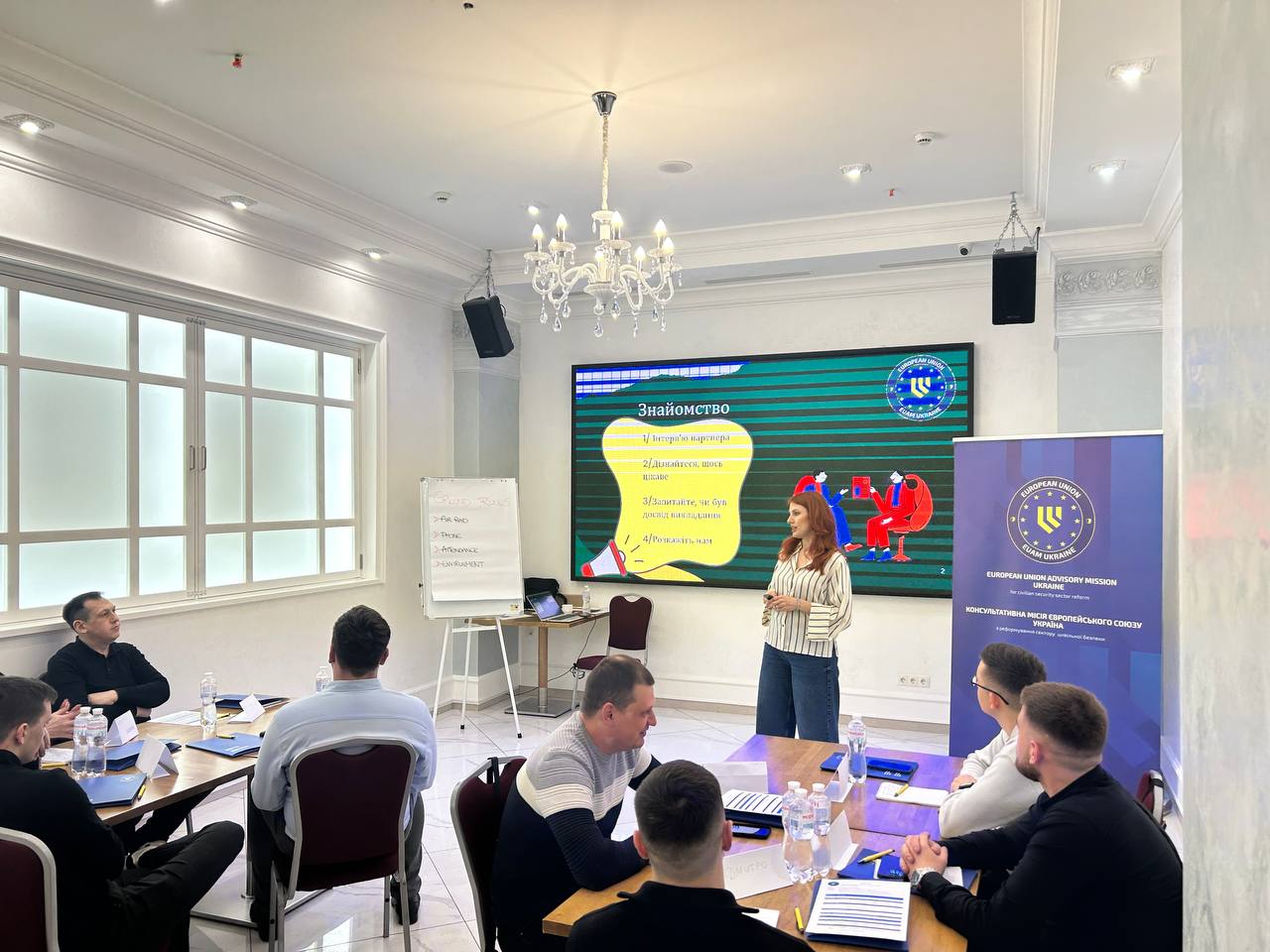"You don't give up your house when it's on fire." When Olha says these words, you can sense the determination behind them. The war could have driven her to flee. In fact, she was already in Sweden - in safety, far away from the destruction. But the feeling of abandoning her country and her fellow human beings was stronger. "I could have stayed, but my heart was in Ukraine. I had to go back."
Before the war, Olha was already working in the security sector. Today, she works in the European Union Advisory Mission for Civilian Security Sector Reform in Ukraine (EUAM) to support Ukraine's civilian security structures: "Many international players have left the country, but the EU mission has stayed. And that means so much to us." Together with an international team, she is working on exchanging knowledge, improving structures and preparing Ukraine for European standards.
Knowledge from North Rhine-Westphalia for Ukraine
This search for knowledge led her to Brühl, where she attended the Europe-wide standardized "Training-of-Trainers" course (ToT) at the North Rhine-Westphalia State Office for Training, Further Education and Personnel Affairs of the Police (LAFP) NRW. In this course, trainers are trained according to recognized standards in order to be able to pass on their new knowledge to trainees.
In the middle of the historic palace grounds, she realized the gravity of her situation. While her home was burning, she was surrounded by order and safety. She cried. For a moment, she didn't have to be strong. For that moment, she felt the burdens she had shouldered day and night for many months - a therapeutic experience, as she says today.
But Olha is not a woman who sinks into sadness: "I was in Brühl to learn, to become stronger. This training is a gift for me." She was deeply impressed by the seminar at the responsible department for foreign assignments and international training (Department 13): "The professionalism, the depth of the content and the opportunity to learn from experienced trainers were a unique opportunity for me."
Digital ways to impart knowledge
The second course, the "Training-of-eTrainers" (ToeT) course, for which Department 13 also developed the European standard and which Olha completed online, had immense benefits: "I realized how valuable contemporary digital learning methods are." The flexibility of the online course was a blessing for her - after all, she regularly commutes to her daughter, who lives in relative safety in another part of Ukraine: "I want her to have a future that makes all this effort worthwhile."
In addition, the online format enables knowledge to be passed on more quickly and widely to colleagues in Ukraine. "I can integrate content directly into our EUAM mission training courses without having to travel long distances, which is especially important for those who live too close to particularly vulnerable areas. This allows us to reach even more people." The course is made special by the certification of the European Security and Defence College (ESDC), which further underlines its quality and recognition.
Visible effects after a very short time
Olha is already putting what she has learned into practice: "A big issue is the methodology - how we impart knowledge, how we structure training courses." For example, she has incorporated the didactic concepts she learned in Brühl into training courses for Ukrainian security forces: "We now structure our training courses in a more interactive way, with more practical elements and scenarios that better reflect real-life challenges and EU standards."
Another example is the increased use of digital teaching methods. "Thanks to our online experience with the LAFP NRW, we are increasingly relying on webinars and e-learning - this helps us enormously to maintain training even in times of war," says Olha
On site, Olha not only trains police officers, but also members of the National Guard, the Border Guard, customs, the public prosecutor's office and other security agencies. The aim is to strengthen the legal and law enforcement sector and promote local ownership for the coming years. The community policing program, in which close cooperation between the police and citizens strengthens trust in the security forces, has been particularly successful: "When the police work with the people and for the people, trust increases - and that is more important than ever in these times." Cooperation with the anti-corruption authority and the Ministry of Justice is also part of her remit. She incorporates the concepts she learned in Germany directly into these training courses.
An example of successful international cooperation
Olha's story is an impressive example of how education and support can create new perspectives - and how the NRW police force works across borders with its commitment. "This training has not only taught me an incredible amount professionally, but has also shown me that we stand together in Europe," summarizes Olha.
She takes back knowledge that she can pass on directly to others: "We need modern teaching methods, new standards, more international cooperation - and that's exactly what I get here."
The LAFP NRW and Department 13 in particular have not only imparted knowledge with these training courses, but have also made an important contribution to international police cooperation.
